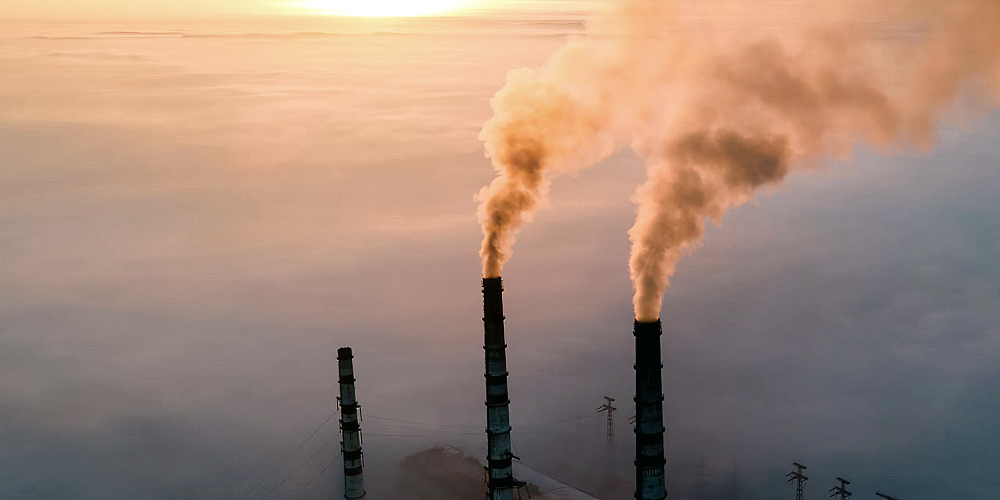
Natural Resources and Environmental Sustainability Minister Nik Nazmi Nik Ahmad said during a recent interview with Sin Chew Daily that his ministry was in the midst of drafting a National Climate Change Bill to achieve the goal of net zero emission, including carbon trading, emission reduction and enforcement.
The carbon trading is currently on a voluntary basis, but once the bill goes into effect, it will be under enforced.
Among the major carbon-reducing measures adopted by nations are cutting carbon emissions to near zero levels, reducing fossil fuel consumption, substituting petrol cars with EVs, adopting sustainable aviation fuels (SAF) for aircraft, imposing aviation fuel tax and carbon tax, among others.
Simply put, net zero means cutting the emission of greenhouse gases to near zero levels (which of course is not possible), with the remaining carbon dioxide emissions being absorbed by oceans and forests.
In early 1990s, developed countries discovered that carbon dioxide emissions had detrimental impact on the the global climate and environment.
The first UN Conference on Environment and Development was held in 1992, and since then the annual COP summits have seen governments first diverging in their views before consensus is eventually reached on drawing up carbon reduction policies and the control of emissions to contain global warming.
In the COP28 held in UAE last year, governments concurred on expediting the conversion to renewable energy and modifying the modus operandi of climate financing, putting people and nature in the core of their climate actions.
With that, the responsibility of containing global warming has now been delegated to the entire human race and not just the governments.
Aircraft should start adopting SAF, while governments impose carbon tax, and new-energy vehicles will extensively replace petrol cars over the next ten years. There have even been proposals to ban all petrol cars in many Western countries.
All these point to the reality that we will have to make some sacrifices in the days to come in order to cut carbon emissions.
Meteorological and scientific data show that rises in global temperatures must be capped at not more than 1.5 °C of pre-industrial levels within the shortest time possible, so as to prevent greenhouse effect from deteriorating further.
According to the Paris Agreement, carbon dioxide emissions must be slashed by 45% before 2030 in achieving the net zero target by 2050.
Unfortunately, the EU’s Copernicus Climate Change Service confirmed last month that 2023 was the hottest year in record, and could likely exceed those of any period in at least the last 100,000 years! Meanwhile, earth surface temperature increases breached the goal of 1.5 °C, meaning, time is running out for all of us!
In 2022, the world’s seven largest emitters (China, US, EU, India, Russia, Japan and Indonesia) released approximately 70% of the world’s total emission of 37 billion tons of greenhouse gases into the atmosphere. Under peer pressure, these countries have set their own net zero goals.
Although Malaysia’s greenhouse gas emission is only a meager 0.69% of the global total, our per capita emission of 7.5 tons is way above the global average of 4.8 tons!
As for Malaysia, our greenhouse gas emission is only a meager 0.69% of the global total at 255 million tons, but our per capita emission of 7.5 tons is far above the global average of 4.8 tons, more or less the levels of the world’s top two emitters, China and the US.
In the face of global climate crisis, companies have begun to accept ESG (environmental, social, and corporate governance) as global certification benchmark.
In the meantime, there are many ways ordinary people like us can do to help cut carbon emissions.
Other than cutting electricity consumption and unnecessary fuel use, we may need to switch to new-energy vehicles in not-too-distant future.
As for the aviation sector, the adoption of sustainable aviation fuels (SAF) — alternative aviation fuels made of renewable substances — has become the talk of the town in oil refinery, aviation and aerospace industries. It is a matter of time SAF will eventually replace fossil fuels in the aviation industry.
In December 2021, United Airlines smoothly transitioned to 100% SAF for its passenger flight from Chicago’s O’Hare International Airport to Ronald Reagan Washington National Airport.
Compared to fossil fuels, SAF slash greenhouse emissions by up to 80% throughout a flight.
First in the world, all flights departing from Singapore’s Changi Airport will have to use only SAF beginning 2026, and this is expected to be followed by many world airports and airline companies.
From what we understand, the Civil Aviation Authority of Singapore (CAAS) will implement 12 measures in decarbonizing the aviation industry in three aspects: airport, airline companies, and air traffic control, and one of the measures is to enforce that all departing flights must use SAF from 2026.
Nevertheless, due to the limited supply of SAF and price fluctuation, Singapore’s government will have to impose SAF tax from 2026 in hope of lifting the SAF use to at least 1% of total fuel consumption, rising further to 3% to 5% by 2030.
Economy class passengers from Singapore to Bangkok may have to pay S$3 of SAF tax, S$6 for Tokyo, and S$16 for London.
From production to combustion, SAF’s carbon emission throughout its life cycle is 80% lower than conventional fuels. As a result, enforcing the use of SAF in aviation is of critical importance to the decarbonization of the aviation industry.
It has been estimated that up to 65% of the reduced carbon emissions will come from SAF by 2050.
Norway is among the pioneers in spearheading the use of SAF, and has in 2020 ruled that all aviation fuel suppliers must add 0.5% of biofuels in all aviation fuels.
Neither Norway nor Singapore is an emitting “monster,” but these two countries must be commended for taking the lead in promoting the use of SAF and educating the consumers that everyone of us indeed has the obligation to reduce carbon emissions.
ADVERTISEMENT
ADVERTISEMENT








































